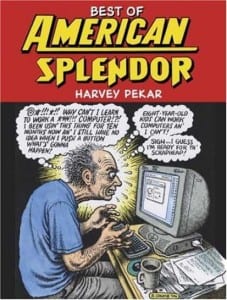This post is written by Ernesto Priego a PhD student at the Department of Information Studies and UCL Centre for Digital Humanities. You can find out more about Ernesto on his blog and twitter feed.
International Graphic Novel and Comics Conference. Comics: Cultures & Genres
Manchester Metropolitan University
12-14 April 2010
On April 14th I will participate in the International Graphic Novel and Comics Conference. Comics: Cultures & Genres at Manchester Metropolitan University. My paper, drawn from my PhD dissertation, is titled “‘Floppy Paper Things With Staples’: Comics and Materiality in the Digital Age.” The paper is indeed a continuation and reworking of an article I presented last year at the Computers and the History of Art 25th Annual Conference in London.
Organised and curated by Dr David Huxley and Dr Joan Ormond, researchers of the Manchester Metropolitan University Visual Culture Research Centre, the Manchester conference will host keynote lectures by some of the most prolific comics scholars in the UK (Paul Gravett, Roger Sabin, Mel Gibson and Martin Barker), as well as eight panels covering the subject areas of genre, gender, culture, national identity, adaptation, ideology, history and form. It is within this last bracket that I will participate.
The Manchester conference also marks the launch of the Journal of Graphic Novels and Comics (Routledge), a much-needed addition to the still-limited number of peer-reviewed publications solely devoted to the study of comics, such as the pioneer International Journal of Comic Art and ImageTexT: Interdisciplinary Comics Studies .
My paper seeks to discuss how materiality plays/played a key role in the phenomenology of comic books and graphic novels, and therefore in understanding what is at stake in the migration from the printed page to the digital screen. In days when the “dematerialisation” of “creative content” is so pervasive, it is important to focus more emphatically on the materiality of the printed comic book as a process of construction of meaning.
The challenges of contemporary comics scholarship and comics conferences are several. In spite of their apparent ubiquity in the mainstream cultural landscape, comic books are the object of a widespread prejudice that has two main expressions. One is the debatable disqualification of any text perceived as addressed or appealing to children as lacking in “seriousness;” the second is a pervasive iconophobia that still has very actual manifestations today.
For comics scholars the challenge remains in establishing a critical distance from their object of study. Nevertheless, as Karen Hellekson and Kristina Busse discuss in their introduction to Fan Fiction and Fan Communities in the Age of the Internet, it cannot be denied that often the academic study of popular culture shares productive and creative spaces with “fan culture” and is the result of “the meeting of two worlds” (2006). This does not deny the fact that serious critical inquiry of cultural products requires both a passionate approach to the subject matter and an almost heartless, cold-blooded ability to dissect it.
Bart Beaty (University of Calgary) wrote that comics, as “a maligned and ignored medium of communication” tends to be “bolstered by those that are interested in the form” (2004). In reaction to this widespread tendency Beaty argues that if “comics studies” are to be taken seriously as a scholarly field, “the medium [of comics] needs to be promoted by its detractors.” According to Beaty, beyond the mere “celebration” of the form, what would make comics scholarship reach “maturity” would be proper scholarly interrogation; “to bring to light submerged insights into culture generally that the specific form of comics illuminate.”
I am hopeful the Manchester conference will offer both an excellent opportunity to evaluate the state of international comics scholarship and to prove that a love for comics is not opposed to their critical scholarly interrogation.
 Close
Close


 Harvey Pekar, an American writer of nonfiction comics, died on Monday July 12, 2010, aged 70. Pekar achieved fame with his
Harvey Pekar, an American writer of nonfiction comics, died on Monday July 12, 2010, aged 70. Pekar achieved fame with his